
‘Supine Flames’ sculpture by Melanie Newcombe
The radical Cubist art developed at the beginning of the 20th Century by Braques and Picasso was one of the first forms of abstract art. The Cubists challenged conventional forms of representation, such as perspective, which had been the rule since the Renaissance. Their aim was to develop a revolutionary new way of seeing which reflected the streamlined modern age.
Picassos realisation in 1907 that African art had a deeper mission to give expression and form to an artists subconscious forces, in order to confront and conquer their inner fears, stands as one of the motivating factors that triggered the beginning of abstract art. The Cubists inspired many other artists around the same time to break free from the constraints of established art, which had remained the same for centuries. Matisse was also capturing a serenity through simplification of ideas and form, believing details lessened the purity of lines and harmed the emotional intensity. Brancusi was approching his art on a similar tragectory, where he belived the mind recognised form with a more minimalist perspective and saw movement as a flash of spirit, stripped of unessecary detail. Intuitive perception didn’t require too much cumbersome detail to grasp the form of a subject, as it had already filled in the spaces ahead of the intellect.

‘Joy of Dance’ Dan McDermott
Similarily, at the beginning of the 20th century, dance was also undergoing a revolution with the promotion of a spontaneous avant garde style of modern dance. Isadora Duncan was one of the key proponants during the early 1900’s, who toured Europe and America, believing dance to be a luminous expression of the soul. She wasn’t enthralled by the strict disiplines enacted by the European ballet schools and intitially rejected there routines in favour of a more free form dance style. “The beauty of a moving figure lies in its intention, and not in the expertness of its gymnastic.” Other creative dancers like Loi Fuller and Josephne Baker were also touring Europe during this era, promoting free spirited dance expressions of raw, unhinibited movement. Up to the 20th century, theatrical dance was by and large, content to be associated with dramatic spectacles of storytelling.
The evolution of abstract art converged with the introduction of avant garde dance performances at this time, where the shape, energy and rhythm of the expressive powers of dance were conveyed in a more minimalistic manner while combined with poetic abstractions. The risk, chaos and unpredictability of the abstract reflected the motion of dance movement, especially if it was synchopated, free form avant-garde or trance oreintated. The utilisation of line, textures and space in abstract, stylised and semi abstract art adapted nicely to the spirit of artistic dynamic motion.
In this post I am examining the abstract styles in sculpture and ceramic forms and decorations that allude to a free and sponataeous aesthetic conveying the expression of movement, rythym and dance.

Henri Matisse–‘Project for The Strana Forandola’
1938

Clement Massier ceramic lustre Charger, ‘La Danse’
Macklowe Gallery

Philippe Hiquily- ‘La Traviata’

Ivana Batalo sculpture

Keith Calder — ‘Faith’ nude dancing couple

Alexander Archipenko ourdoor bronze abstract sculpture

Aurelio Lebrato abstract sculpture

Antònia Palau Casañé Abstract figurative Young Lovers Kissing

Zhan Wang

Yunghsu Hsu groovin’ dance sculpture

Bronze dancers 2005 by Heather McFarlane

Tyra Lundgren ceramic panel for Gustavsberg

Saad Romany Mikhaiel painting with mosaic texture

‘New Eurybia’ Sculpture—Peter Mandl

Peter Mandl — ‘Gryningen’ bronze sculpture

Elena Sudakova — photo by Solve Sundsbo—Invitation to the dance series

Two Bronze female figure Sculptures – Gilbert Franklin

Mia Tyson bottle

Teyana Taylor by Sasha Samsonova

‘Torso’ by Elizabeth Catlett, USA

The Dyad—Twin Souls by Beverly Morrison

‘The Dancers’, Woodcut, 1939—Charles Turzak

‘The cosmorama IV’–Jean Dubuffet

‘Tango’ sculpture by Larry Young

‘Solar Woman’,’ Lighting Sculpture by Isabelle Masson Faure
1980

Abstract crystalline glaze Vase—Jen Stein

Brutalist stone monument in Tjentište

Bronze Tango Dancer

Picasso — ‘Femme aux bras ecarte’

Vintage Inca vessel

Ingrid Saag -‘Salsa’ vase
2006, UK

Isobel Folb Sokolow – Dancer II
1985

Italian alabaster sculpture ‘Aylya’ – Marie Jos e Leroux
Height 36cm

Jitterbugs – Weaver Hawkins
1945

Kawai Kanjiro— ‘Bird Flat’ ceramic vessel

Bill Wadman—‘Dancers in Motion’

Ursula von Rydingsvard, ‘The Contour of Feeling’

Komunikacija

‘Large Interior Form’—bronze sculpture — Henry Moore
50s

Niki de Saint Phalle mirror mosaic sculpture

Caroline Lee, Maquette for Monument to the Resistance

Large Lidded Jar by Ralph Bacerra

Large Mata Ortiz Pottery black and orange Vase

Ambacht Haalderen – AMHA dancing figures
Netherlands

Jenny Orchard – ‘A vegetarian cannibal’

Alied Nijp Holman—‘Aphrodite’

Catalo Josée- ‘On the ice’

Dancer Eros Volusia by Hart Preston
1941

Alexander Archipenko, ‘La Danse’ (Dance)
1912

René Buthaud naked dancer motif vase

Hal Fromhold-California Studio Pottery Ceramics – People Wall Sculpture

Glass mosaic Owl Panel by Kashena Hottinger

Gerald Trottier – ‘The Pilgrimage of Man’ mosaic mural
Carleton University

Frederick Weinberg-Pair of Abstract Wall Sculptures
Mid-Century

Elena Solomyanko, Vaganova Ballet Academy
Alexander Yakovlev photo

Ceramic Vase ‘Enigma 4′-hotpaella
Valencia, Spain H12inch

Paolo Soleri’s Arcosanti
Arizona

Vallauris, “Monika” sculpture by Jacotte & Roger Capron

‘Atalanta and Hippomenes’ — Jean Cocteau
1958

‘Dancer’ abstract wall mural by Alfonso Muñoza

Dolorosa Sinaga foil sculpture–Indonesia

Larissa Smagarinsky– ‘The Song’ fibreglass resin sculpture
Mosman Gallery

Stoneware Bottle Form by California Ceramist Doug Lawrie
Lisa Cliff Collection

‘Dancing in Tango’ Abstract Sculpture by Mike Walsh

Edward Maracek- ‘Starlight Star Bright’
1950

Dumler and Breiden vase and jug
Germany, circa 1955

A figurative relief sculpture of a ballet dancer in arabesque pose by Colorado artist, Eric Bransby

Jenny Orchard

‘Blue Dancer’ – Alexander Archipenko

Barbara Hepworth, ORPHEUS (MAQUETTE-II)

Statue of Icarus by Marcello Mascherini in the Sala di Icaro, designed by the architect Giuseppe Pagano—1939 Milan Biennial

Ceramic dancer figure-Edouard Cazaux, France

‘Solano’ (1958) Glazed stoneware by Peter Voulkos. Photo by M. Lee Fatherree.
Oakland Museum of California

Sgraffito snake pot–Eleuterio Pinat

Jiubka Kirilova – ‘Fire Dance’

Sascha Brastoff ‘MINOS LARGE’ footed Egg Dome

Sandra Wray large ceramic vessel
Art ZA

Raoul Larche – Loe FULLER Nouveau figure lamp

Loie Fuller – ‘Serpentine Dance’
ca. 1900

‘Pushed and Pulled’ — Denis John Rafman

Rudy Autio abstract figure sculpture

Ceramic Spherical Table Lamp with Dancing Figures by Tye of California

Paul Jackson— ‘Large Twisted Life Vase’
Penwith Gallery

Pauline Ohrel – female wire sculpture

Pablo Picasso — ‘The Dancer’—1942

Pablo Picasso, ‘Flute Player and Dancer’, 1947
(white earthenware, painted with enamels, glazed)

Mid century ceramic abstract sculptural lamp

Form 2017 – Monika-Debus

Carlton F Ball sgrafitto tri handle vase

Mid-Century Mod Burnt Wood Witco Style Sculpture—‘Cecil’ By SuZanna Anna
@-Atomic Lodge etsy

Marcello Fantoni–bottle with abstract dancer

Lisa Hammond ceramic ovoid bottle with abstract motive

Lena Arice Lucas, Abstract Sculpture – ‘An Understanding’

HARSA-Monumental Vase Amphora Israeli Design









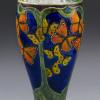

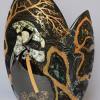

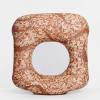
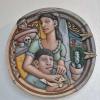
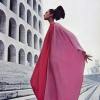
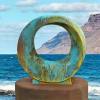

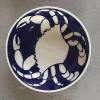



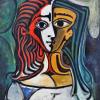

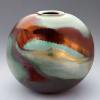
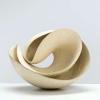
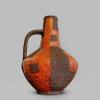



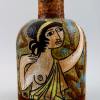
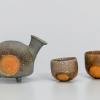
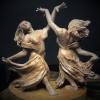
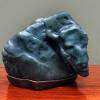
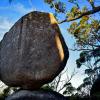
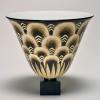

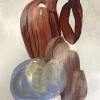

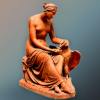

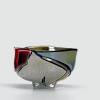
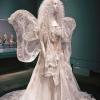
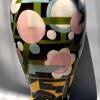


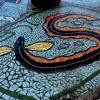

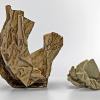
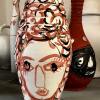
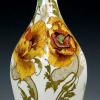


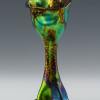
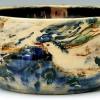
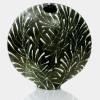

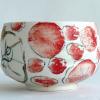
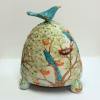

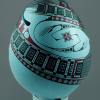
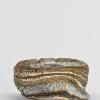
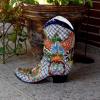
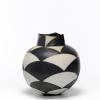
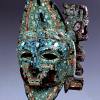
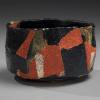
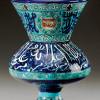
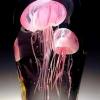
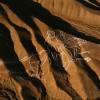
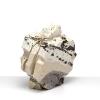
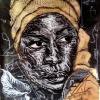
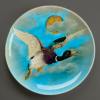
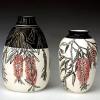
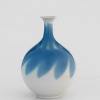
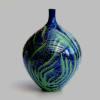
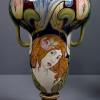
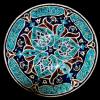
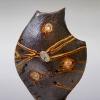
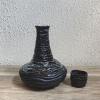
5 Comments
Thanks Robbie, great post with lots of nice work.
Another great post!
Your post brought me back to my days as a Juilliard dance student and now to my days of
paper sculpture making –sometimes using paper clay. These pieces are so very full of
both going with and going against gravity and as I looked at each of them I felt like I wanted
to fly!!! Thanks Robbie once again for a great post.
Wonderful diversity. Every medium has it’s inbuilt, intrinsic rules and the artist ha to come to terms with what the medium can do and allow. Should one feel uncomfortable in front of a piece of “art”, it is almost certain that the medium was violated.
I love sculptures